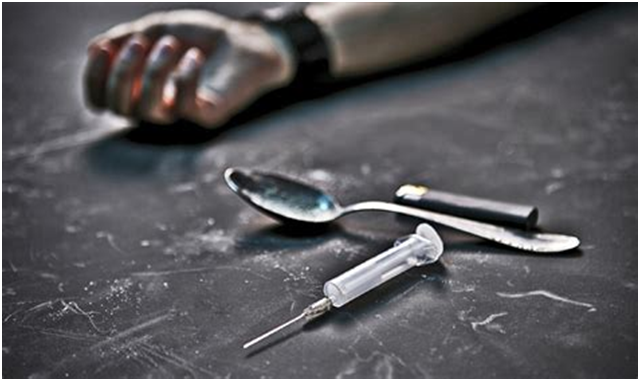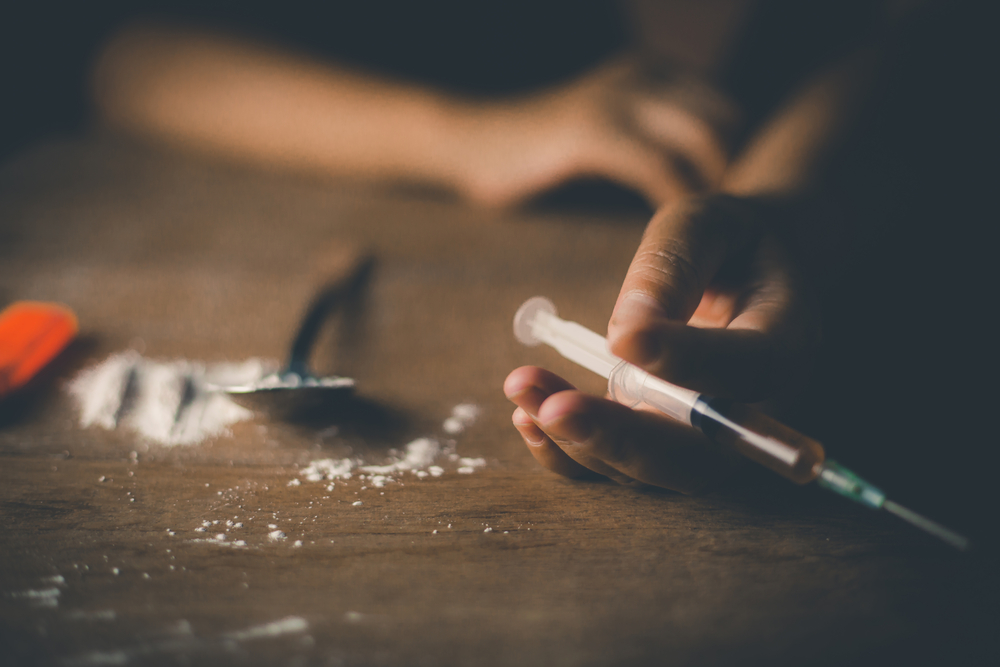Heroin is an extremely addictive opiate, which kills thousands of people every single year. The drug is actually so addictive that using it a few times is often enough to lead to a full pledged heroin addiction.
Sadly, over the past ten years, heroin use has more than doubled in adults between the ages of 18 and 25. In addition to this, there has also been a rise in the use prescription pain medications such as Vicodin and OxyContin, which experts suggest could be a gateway to heroin abuse.

A major problem with this is that it’s not always easy to notice when a person is struggling with heroin addiction. They may seem more or less normal on the surface, but within their body and minds, there are dozens of physical changes taking places.
You might be able to notice that a person has been losing weight, or that they have cuts and scabs on their skin. However, if the person in question is hiding their needle marks, or simply taking the drug by other means, it can be next to impossible to notice what’s actually going on.
Meanwhile, under the surface, there is a battle going on that is wreaking havoc on their heart, lungs, brain, and other internal systems.
Below, we’ll go over the short and long-term effects of heroin use, as well as how you can get help breaking free from the addiction.
Read about other drugs and their effects on the body here.
How Heroin Affects the Body
When a person is struggling with a heroin addiction, finding their next fix becomes the only thing they can think about. But, using the drug causes an intense euphoria, which can mask some of the more harmful effects that are caused within the body.
For example, heroin binds to certain areas in a person’s brain that are responsible for producing natural chemicals such as dopamine and serotonin. These areas are gradually worn down, which is why it can be so difficult to stop using heroin, since nothing else will produce the same type of high.
A few other short-term effects of heroin include:
- Slower or depressed breathing.
- Slower heart rate.
- Blocked or delayed pain signals.
- Heightened body temperature.

Long-Term Effects of Heroin Use
Because of the fact that heroin changes how the body functions, its system slowly begin to breakdown as a person continues to use the drug. And, using heroin intravenously poses additional health risks such as infection and disease.
Furthermore, the brain even begins to change because of heroin use. Heroin users are prone to developing hormonal and neuronal imbalances. Over time, their grey matter also begins to deteriorate, which causes changes to their decision-making process, as well as how they respond to stress, and it can even affect their ability to regulate mood and behavior.
But that’s not where the damage stops. Heroin users may also suffer from collapsed veins or cardiovascular infections. This puts the user at a higher risk of developing lung diseases such as pneumonia, and kidney failure and liver damage as well.
Some of the other long-term effects of heroin include:
- Skin infections and abscesses.
- Tooth decay and gum disease.
- Muscle weakness and atrophy.
- Arthritis.
- Menstrual changes
Withdrawal Symptoms
When a person decides to go without using, their body will go through a series of changes, since many of their systems are already unbalanced from previous heroin usage. As the body begins to regulate itself, it’s common to experience physical symptoms such as abdominal cramps, shaking, nausea, sweating, and muscle spasms.
These symptoms are not often life-threatening; however, they are capable of making a person feel so sick and uncomfortable that they’ll begin to think that using heroin again is the only way they’ll ever feel better.
Don’t Struggle in Silence
No matter how you look at it, struggling with heroin addiction can be extremely difficult, especially when a person is alone. In fact, studies have shown that more than 90% of heroin users who try to fight their addiction alone will end up relapsing.
Fortunately, no one has to struggle alone.
Asking for help can be one of the most difficult things a person can do. But, speaking to a trained addiction professional, like those at Luxury Drug Rehabs, is important in learning about heroin addiction, as well as getting the help you need to break free from the struggle.
So, if you or someone you know is suffering with heroin addiction, it’s important to reach out and find help today. Don’t wait. The longer you suffer in silence, the harder it will be to overcome the addiction.
Treatment centers are staffed by caring professionals who truly understand addiction, which allows them to offer a judgement-free place where healing can begin. Furthermore, they can help you with setting up a planned intervention if it’s someone you know who’s struggling with heroin addiction.
Image Credits: Heroin Addiction from Infinity Time /Shutterstock







